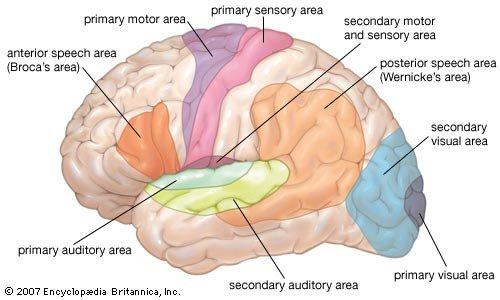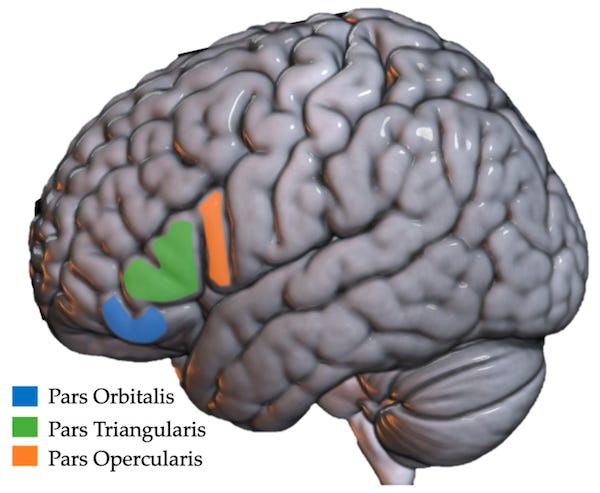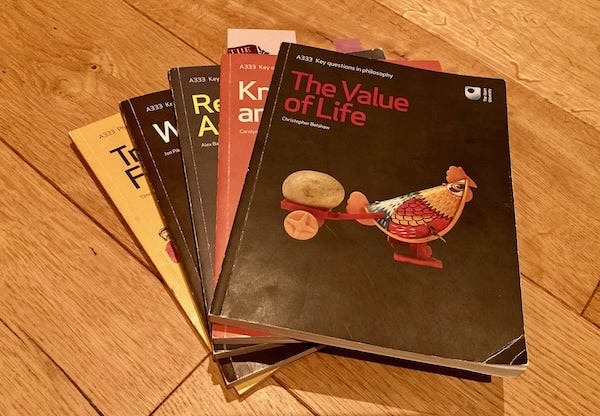Any neuroscientists out there? Neurologists? Neurosurgeons? Neuro-oncologists? Sue? I have a question.
I get two types of seizures. Seizure Type One has me unconscious and writhing, etc. When I wake up, I am entirely normal and surrounded by family.
Me: “Why is everyone sitting on my bed? Is it because you love me very much?”
Little Clown: “No, it’s because you had a seizure. You were out for 25 minutes. We thought you were dead. The ambulance will be here in a minute.”
The ambulance men are always lovely. I showed them the view from my roof, then they took me to the hospital.
You know that feeling on a Ferris Wheel when you go over the top? And you feel a whooshing in your tummy along with a little fear? That’s what Seizure Type Two feels like.
The whooshing continues until I feel it in my head, too. Then it whooshes and whooshes until my head feels like it will explode. Maybe you felt something like this when you were nineteen and had too much Pernod and Black. I get some spinning, too, like I would get from too much Pernod and Black.
I’m conscious the whole time, but all my senses are wrong. This is the scary one.
When I come back to life, Mrs Clown talks to me.
She asks me my name, and I usually get it right. But that’s the only name I remember, except… Sometimes I remember my dog’s name begins with ‘P’. Sometimes, I remember Bob Dylan is my favourite musician. But no one else. Not even Mrs Clown.
I couldn't remember my birthday this time. I knew it was in the third month, but I couldn’t remember what the month was called.
There is some interesting neuroscience to be had here. I wonder if anyone can help me understand it.
I can hear and understand all of the incoming language perfectly well. My outgoing language seems fine too… until I try to speak. Everything I want to say is clear in my head. But when it comes out of my mouth, it sounds like mumbo-jumbo
“I am a … … … ᎹᎭᎭᏪᏱ … … ကောက် ကောက် … cooking … … bluuuuuuuq”.
Mrs Clown says she doesn’t understand, so I try again.
“I will … … blingle … pop pop … … ฌฌएउपौ … elbows.”
“Let’s get a pen and paper. Perhaps that will work better?”
I wihiglet___ she
I wascheteded
All the letters are correct, but no one understands the words, even though they make perfect sense to me. I even underlined the first word to make it clearer, but they still don't understand it.
I don’t know why they don’t understand it.
Here’s a map of my brain to help me figure it out. Language happens in the left frontal and temporal lobes.
Wernicke's area helps with reading and listening comprehension. That bit works just fine.
Broca’s area is responsible for outgoing speech, so I think that bit is broken. I suspect I am constructing my outgoing words and sentences correctly, but they get garbled when they are translated into sounds and writing.
So, what bit makes the language in the first place?
Britannica says Broca’s area has two parts: pars triangularis is involved in the outgoing processing of language, of speaking and writing, while pars opercularis is connected to your motor areas and turns those bits of language into words that come out of your mouth and letters from your pencil. Perhaps my pars opercularis is broken?
When I start to recover from a seizure, I can only use a few pronouns. The verbs take a bit longer, but I struggle with nouns for a long time, especially proper nouns.
After today’s seizure, Mrs Clown’s name took about 10 minutes to come back to me, but I couldn’t remember my next-door neighbours’ names until much later. Even once I get back to normal, I still struggle with proper nouns.
Are there any neuroscientist readers who know what is going on?
I’m approaching the end of a degree in Philosophy and Classical Studies right now. I have two more philosophy essays to write, plus a module on Greek and Roman myth and then I am done.
During my second module — History, Music, Religion and Philosophy — Elizabeth was my only study buddy, and she was diagnosed with lung cancer about half way through. I got my diagnosis a couple of weeks later, and Elizabeth was the first person I told. Elizabeth died while finishing her last essay.
I miss Elizabeth.
I’ve been doing really well in my degree so far, but I have an essay due next week on ‘rationality and true beliefs’, and right now, I don’t feel I can make it to the end.
Let’s hope.










Neurologist here.
From your description, you have two seizure types, both probably coming from the same place.
My guess would be it's your left temporal lobe, especially if you are right-handed, but that would need to be confirmed with imaging studies and EEG. At any rate, the seizures are starting near your language centres.
In the first seizure type, you probably have very rapid spread ("secondary generalization") to the rest of the brain. Most of the brain getting caught up in the seizure is not epileptic, but it is being over-stimulated by the seizing part, and starts to fire excessively. You rapidly lose consciousness because there is not enough intact cortical function to sustain your model of your self and the environment. You seem to bounce back out of these seizures with minimal confusion, with your language centres working quite well, so the overall duration must be short. Inhibitory mechanisms of some sort must be kicking in and terminating the seizure before the language centres have taken too much of a beating. Those mechanisms are not understood, but even low oxygen might be helping to terminate the seizure.
In the second seizure type, the parts of the brain that are not themselves prone to spontaneous seizures - the parts that were innocent bystanders in the first seizure type - don't get caught up in the event. They keep working, allowing you to notice and remember the misbehaviour of the seizure-prone part, which clearly involves language cortex either at onset or after very minimal spread. This type of seizure would probably be called a focal dyscognitive seizure, but the terminology varies. The misbehaving part keeps fitting for longer and with more vigour, because some inhibitory or ameliorating process that happened in the first seizure is not getting activated.
In one way. these second seizures are milder, but, at the place where they actually start, they are more severe.
Your speech and language disturbance has two phases. During the focal seizure, those parts of the brain are busy firing for their own pathological reasons, not processing language, so you can't use them to speak. Most of the trouble at that point seems to be near Broca's area, but you could also have other issues like a verbal apraxia, or perhaps your awareness is a little more impaired than you realise. After the seizure, those parts of the brain are no longer fitting, but they are stunned, deplete in energy stores, all their chemical gradients mucked up, and unable to do their job.
That means you have a combination of ictal dysphasia (loss of language during the seizure) and post-ictal dysphasia (loss of language during the recovery phase).
Your post-ictal dysphasia is a mild mixed dysphasia, not localisable to a single area. Your failure to recognise incorrect words as wrong implicates Wernicke's Area. Hesitation and frustration is more typical of involvement of Broca's Area. You have a bit of both. Pure involvement of output centres usually leaves comprehension (and recognition of errors) almost entirely intact, so you do not have a pure output syndrome.
You could map out the deficits in more detail by getting someone to do a more complete language assessment during the post-ictal phase. For instance, they could ask you to follow a 3-step command, ask you to repeat a phrase, and ask you to name simple everyday objects (and then rare objects.)
Obviously, this is all conjecture. based on partial information, so you would need to check with your own neurologist and see to what extent imaging and MRI supports this set of hypotheses. Focal epilepsy that does not respond to medication is often treatable with surgery, but that obviously comes with risks.
Wow, that's the kind of story that puts petty daily problems in stark perspective. I can imagine it must be terrifying. And I can also imagine that writing about it helps.